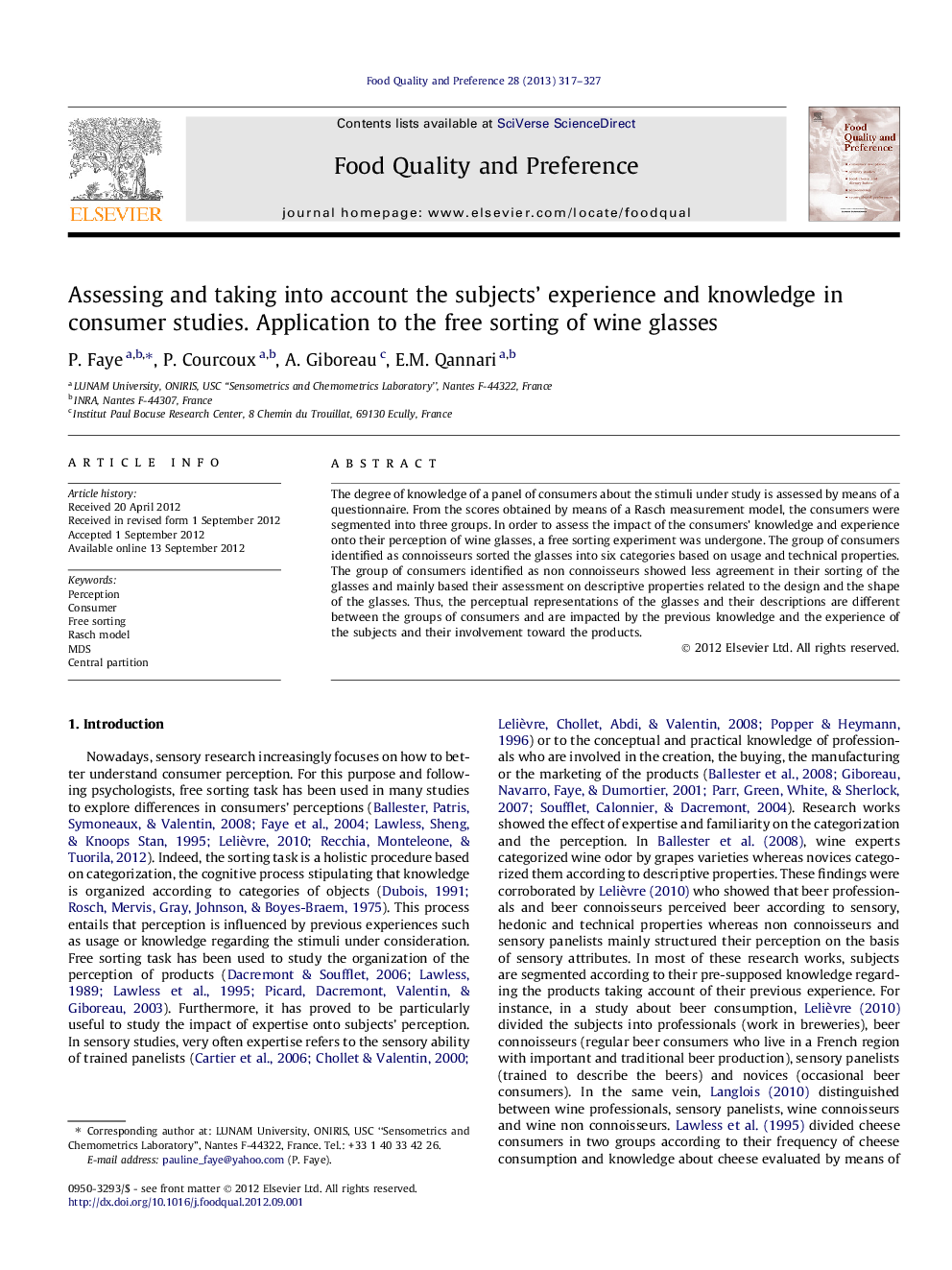| Article ID | Journal | Published Year | Pages | File Type |
|---|---|---|---|---|
| 4317383 | Food Quality and Preference | 2013 | 11 Pages |
The degree of knowledge of a panel of consumers about the stimuli under study is assessed by means of a questionnaire. From the scores obtained by means of a Rasch measurement model, the consumers were segmented into three groups. In order to assess the impact of the consumers’ knowledge and experience onto their perception of wine glasses, a free sorting experiment was undergone. The group of consumers identified as connoisseurs sorted the glasses into six categories based on usage and technical properties. The group of consumers identified as non connoisseurs showed less agreement in their sorting of the glasses and mainly based their assessment on descriptive properties related to the design and the shape of the glasses. Thus, the perceptual representations of the glasses and their descriptions are different between the groups of consumers and are impacted by the previous knowledge and the experience of the subjects and their involvement toward the products.
► A strategy of analysis to assess the effect of consumer’s knowledge on their perception is proposed. ► The consumers were instructed to fill in a questionnaire regarding their knowledge on wine. ► They performed a free sorting task of thirty photos of wine glasses. ► Several statistical methods were undergone to analyze the sorting data. ► The findings reveal perceptual differences between connoisseurs and non connoisseurs of wine.
